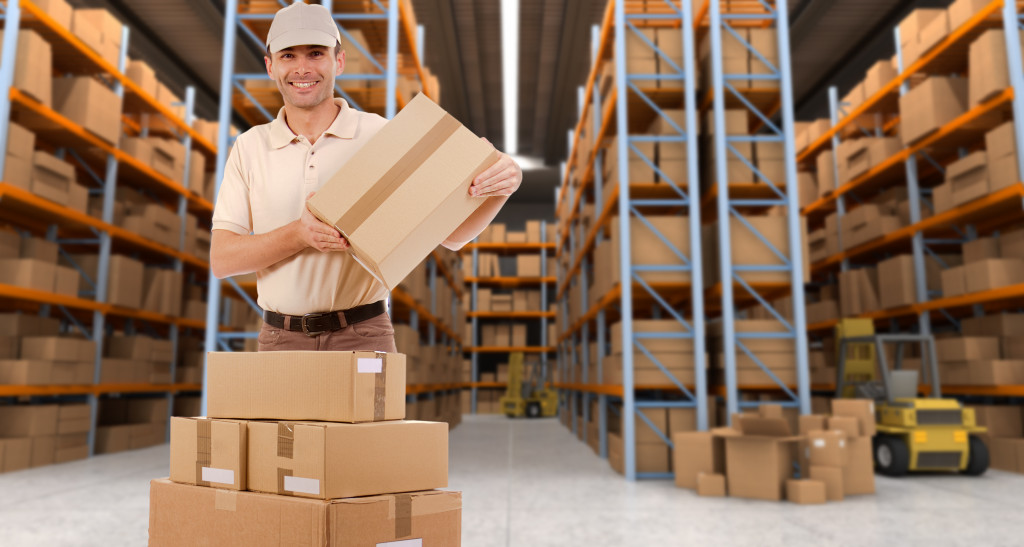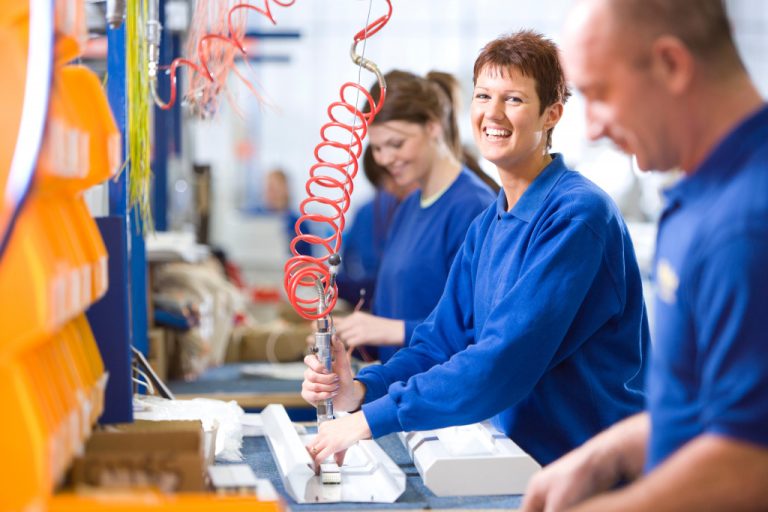The international distribution of goods has become an essential component of many businesses. Companies rely on a vast network of suppliers, partners, and logistics to ensure that the products they sell reach the customers who need them in a timely manner. In recent years, technological advancements have provided new tools for streamlining the process of product distribution on a global scale. Here are some examples.
Cloud Computing
Cloud computing is becoming an essential component of product distribution as businesses increasingly rely on online services for their daily operations. Cloud computing provides companies with access to shared resources such as software, storage, and processing power over the internet.
This allows businesses to use their resources more efficiently while reducing operational costs associated with hosting and maintenance. Additionally, cloud computing can enable businesses to quickly expand or contract their services based on demand.
For example, many large e-commerce companies are using cloud computing to automate their warehousing and order fulfillment processes. This allows them to quickly respond to customer demands while maintaining a high level of quality control.
Supply Chain Automation
Supply chain automation is another important tool for streamlining product distribution globally. Businesses can reduce errors and delays by automating certain processes within the supply chain while improving customer satisfaction.
Automation also allows companies to quickly respond to changes in demand by adjusting production levels accordingly. For example, some companies are using automation to monitor inventory levels in real time and adjust production schedules accordingly.
In addition, businesses can use automation to monitor the performance of their suppliers and partners, ensuring that all components in the product distribution process are functioning optimally. These tools can go a long way toward reducing delays and improving customer satisfaction.
Custom Packaging
Custom packaging is another important tool for streamlining product distribution on a global scale. By investing in efficient custom box designs and shipping containers, businesses can reduce the size and weight of their shipments while still ensuring that products arrive safely and securely.
This allows companies to save costs associated with shipping and reduce their environmental impact by reducing the amount of packaging material needed for each shipment. Additionally, custom packaging can also improve customer satisfaction by providing a better unboxing experience.
This is because custom packaging can be designed to fit the product perfectly and make it easier for customers to open and remove their items.

3D Printing
3D printing technology has opened up new possibilities for rapid prototyping and manufacturing on a global scale. 3D printing allows companies to produce parts faster and cheaper than ever before, making it easier for them to distribute products around the world quickly and cost-effectively.
In addition, 3D printing can reduce lead times by eliminating costly middlemen from the supply chain, allowing companies to produce components locally instead of shipping them from overseas manufacturers or distributors.
For instance, some companies are using 3D printing to produce spare parts on demand, eliminating the need for long lead times and expensive inventory costs. It also allows for better customization of parts, allowing businesses to quickly manufacture products according to customer specifications.
Robotics and Artificial Intelligence
Robotics and artificial intelligence (AI) are two technologies being used increasingly in product distribution systems worldwide. Robotics provides a reliable source of labor, while AI algorithms help optimize logistics operations by accurately predicting delivery times and identifying potential bottlenecks in the supply chain.
Companies can also use robotics and AI to improve customer service by providing customers with more accurate information about their orders in real time via automated chatbots or other digital assistants.
Moreover, robotics and AI can be used to improve warehouse management by automating certain processes, such as sorting and packing. This not only streamlines product distribution but also improves the safety of workers, as they no longer have to handle heavy objects manually.
Blockchain Technology
Finally, blockchain technology is revolutionizing product distribution by creating trusted networks between buyers and sellers across different countries or regions without relying on intermediaries such as banks or government entities for verification purposes.
Blockchain technology enables companies to securely track shipments across long distances without compromising data security or accuracy while providing complete transparency throughout each process step, from purchase order creation to final delivery confirmation at the destination port or warehouse location.
Furthermore, blockchain technology also makes it easier for companies to process payments quickly and securely, allowing for faster product distribution on a global scale.
Product distribution has become essential to many businesses’ operations due to increasing global competition and consumer demands for quicker fulfillment times. New technologies such as cloud computing, supply chain automation, custom packaging, 3D printing, robotics/AI, and blockchain technology have significantly enabled companies to streamline their product distribution processes. These advances allow businesses to quickly respond to changes in demand while reducing operational costs associated with traditional methods. As these technologies continue to develop, the world will likely see even greater efficiency gains in global product distribution systems in the years ahead.

















